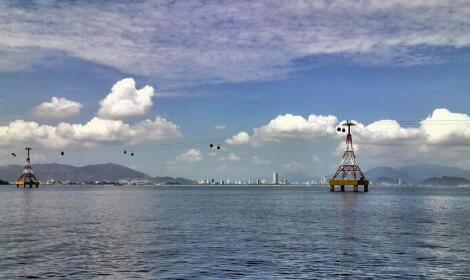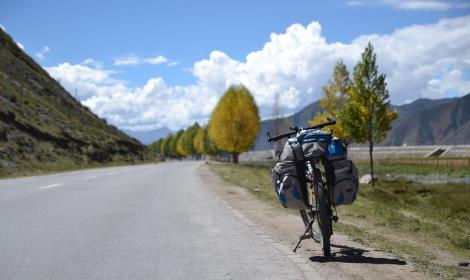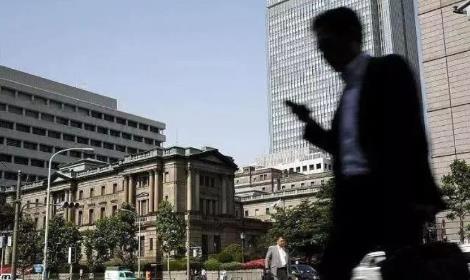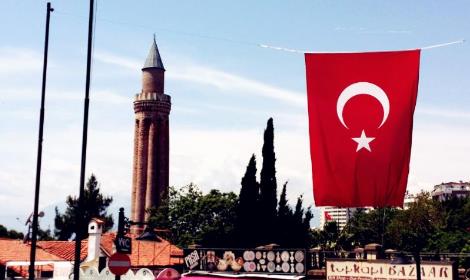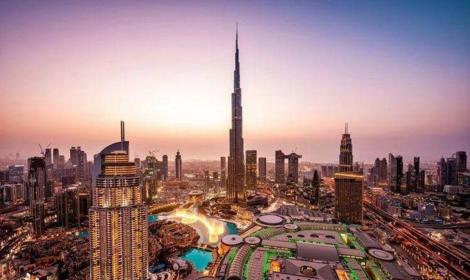为什么有些国家希望穷游人士远离这些国家?(二)
正文翻译
Why do some countries want budget travelers to stay away?
为什么有些国家希望穷游人士远离这些国家?
为什么有些国家希望穷游人士远离这些国家?
评论翻译
Elizabeth John
How long can you stay in each country when traveling?
It depends on the country.
Generally, most countries have rules in place regarding the maximum duration you can stay in their country, depending on the purpose of your visit.
Some countries, like the United States, have different lengths of stay depending on the type of visa or the purpose of the visit.
For example, the length of stay granted with a business visa would be different than that granted with a tourist visa.
Depending on the country and your purpose of visit, the length of stay can range anywhere from a few days to several months.
It is important to check the rules of the country you are visiting prior to your arrival to ensure that you understand the restrictions and follow them during your visit.
旅行时你能在每个国家停留多久?
这取决于国家。
一般来说,大多数国家都有关于你在其国家停留的最长时间的规定,具体取决于你的访问目的。
一些国家,如美国,根据签证类型或访问目的的不同,有不同的停留时间。
例如,商务签证的停留时间与旅游签证的停留时间不同。
根据国家和你的访问目的,停留时间可以从几天到几个月不等。
重要的是,在抵达前查看你访问的国家的规则,以确保你了解限制并在访问期间遵守这些限制。
Lee Balki
What should people factor in their budget before they travel?
I'm assuming this is about Travel and not Vacation. There's a difference.
For Travel, the following are the factors that must go into your budget:
Transport: The cost of getting places [Air, Rail, Road, Water...]
Boarding: The cost going into your lodging.
Food & Beverages: Cost of wating 3meals a day and beverages if you plan to have a gastronomic adventure!
Sight-seeing: There are great places to see everywhere, not just for vacationers. Some places have entry fee and fee for taking in cameras and video recorders.
Tip: A little tip can go a long way into making your journey hassle free. Spend little on tipping the poeple who wait on you and help you out. Moreover, have some good conversation with them as well. Ensure they remember you and have good opinion about travellers in general. Read a bit on the tipping standards of the place you're travelling to.
Entertainment: It could be a day in the water park or trying out adventure sports. Basically anything you spend on amusing yourself while you're on the trip. Be sure to read up on the opportunities available at your destination before you travel. Poke around to get an approximate cost for each activity.
人们在旅行前应该在预算中考虑哪些因素?
我想这是关于旅行而不是度假,这是有区别的。
对于旅行,以下是必须纳入预算的因素:
交通:获得位置的成本[航空、铁路、公路、水路]
住宿:你的住宿费用。
食品和饮料:如果你计划进行美食冒险,那么一天三餐和饮料费用!
观光:到处都有值得一看的好地方,不只是适合度假者。有些地方要收门票费,还要收摄影方面费用。
小费:小费可以让你的旅程变得轻松。给那些侍候你、帮助你的人很少的钱作为小费。此外,还要和他们好好聊聊,总的来说,给出的钱确保他们对旅行者有好感,阅读一下你要去的地方的小费标准。
娱乐:可以在水上公园度过一天,也可以尝试冒险运动。基本上,你在旅途中自娱自乐方面的花费。旅行前一定要仔细阅读有关于目的地可利用的机会。查看每项活动的大致成本。
Medical: Travelling is for your soul, your self. It may not really suit your body all the time, but we gotta see what we gotta see right. So it could be an infection or a flu or a sprained ankle. Getting good medical care at the right time will ensure you complete your journey and that it doesn't take your life while at it [ :)] Keep a little fund on the side for medical emergencies. If you don't meet with an opportunity to dip into it, then you can celebrate [possible on your last day] by moving this fund to the Entertainment or Food & Beverage section!! Hurray!!! Or you can just save it!
Other Emergencies: keep enough cash to find a way to get back home. Our beautiful Earth does not always house beautiful people on it, not does it provide you with beautiful conditions. Yet again, we gotta see what we gotta see. You should be prepared in the event of facing situations like losing your luggage and documents. Have enough money tucked in a safe place to get you to the closest place from where you can find Help.
Miscellaneous: There are countless things that you may need during the course of your travel. Paying for internet, a call from a public booth, toiletries, spare clothes, laundry etc etc. Since these are expenses that vary depending on the type of travel you do [long/short trip, local/international trip, road/trek trips....] Anything that does not come under the 8 tags above can be put into this. Read up on things you might have to carry based on your destination. For Example: If you're travelling to India, Mosquito repellant, Internet, local sim card etc would be things you may have to consider under this tag.
Hope this answers your question at some level :)
医疗:旅行是为了取悦你的灵魂,你的自我,但你的身体可能不允许,但我们又必须看到我们应该看到的。所以可能遭遇感染、流感或扭伤了脚踝等突发情况。在正确的时间得到良好的医疗护理将确保你完成旅程,并且在旅途中不会夺走你的生命;为医疗紧急情况保留一点资金。如果你没有用到这笔钱,那么你可以通过将这笔资金转移到娱乐或餐饮部分来庆祝(可能得在你的最后一天才做出此选择)!哇,或者你可以存下这笔钱。
其他紧急情况:保留足够的现金,以便找到回家的路。我们美丽的地球上住着的人并不会总是那么友善,也不总是为你提供满意的条件。再说一遍,我们必须看到我们必须看到的。你应该做好准备,以应对行李和文件丢失等情况,把足够的钱放在一个安全的地方,这样你就可以去最近的地方以寻求帮助。
杂项:在旅行过程中,你可能需要无数的东西。支付互联网费用、公共电话亭电话费、洗漱用品、备用衣服、洗衣费等。由于这些费用因你的旅行类型而异——长途/短途旅行、本地/国际旅行、公路/徒步旅行;任何不属于上述8个类别的费用都可以放入此项中。根据你的目的地,了解下你可能必须携带的东西。例如:如果你要去印度旅行,驱蚊剂、网卡、本地sim卡等都是你必须考虑的。
希望这能在某种程度上回答你的问题。
Rachel Ryan
How should I go about travelling to every country?
The answer to this question depends on several different variables.
If you want to go the traditional route and visit all 193 United Nations-recognized countries, then you may need to set aside a large chunk of your life for the endeavor.
Start by calculating the cost and making sure you have sufficient funds to cover it, because some countries may require pricey visas or additional travel expenses.
Once you have a plan and budget, research each country and determine the safest and most efficient way to get there, as well as the best places to stay when visiting.
Finally, make sure that you have the necessary vaccinations and are mentally and physically prepared for the journey.
我应该如何着手到每个国家旅行呢?
这个问题的答案取决于几个不同的变量。
如果你想走传统的路线,访问所有193个联合国认可的国家,那么你可能需要留出一生的大部分时间来做这项工作。
首先要计算费用,并确保你有足够的资金来支持,因为有些国家的签证或额外的旅行费用可能需要一大笔钱。
一旦你有了计划和预算,就要研究各个国家,确定最安全、最有效的方式,以及访问时的最佳住宿地点。
最后,确保你接种了必要的疫苗,并在心理和身体上为旅程做好了准备。
Matt Musselman
What are some good tips and tricks to travel cheap?
There are already some great answers to this question, and I don’t want to duplicate too many of the insights others have highlighted, but here are some additional ones.
有什么好的建议和技巧可以让你的旅行更便宜呢?
这个问题已经有了一些很好的答案,我不想重复太多其他人强调的见解,但这里还有一些额外的见解。
Travel in the “shoulder season” (time just outside the main tourist season) if you’re able to. Prices and availability for almost everything (airfare, hotels, attractions) are better when you’re not going in peak season. Off season can sometimes be even better, but some destinations practically shut down in the total off season, so do your research.
Having flexible travel dates can also make a huge difference in your costs.
Also, if you travel a fair bit, it’s definitely worth the effort to invest in a travel-focused credit card. Typical benefits include:
Very good exchange rates on foreign currency, and without the extra fees some cards have for foreign purchases.
Usually include other perks that add up, like free insurance for rental cars (vs paying an extra $150 for it at the rental office).
如果可以的话,可以在“肩季”(旅游旺季之外的时间)旅行。如果你不在旺季旅行,几乎所有东西(机票、酒店、景点)的价格和可用性都会更好。淡季有时会更好,但实际上有些目的地在整个淡季都会关闭,所以请进行调查。
灵活的旅行日期也会对你的成本产生巨大影响。
此外,如果你经常旅行,办一张以旅行为重点的信用卡肯定是值得的,典型的好处包括:
外币兑换率非常方便,而且没有额外费用(某些卡是有额外费用的)。
通常还包括其他额外津贴,比如租车方面免费保险(而不是在租车处额外支付150美元)。
Booking
Use tools like Hipmunk or Google Flights to search airfare and hotels. They search ALL the providers and agents at the same time, are neutral, and will tend to highlight the bookings that are obxtively cheaper, not simply whatever thing they’re paid to promote.
Once you find a flight or hotels, make a habit of booking directly with the airline or hotel most of the time, or at least with reputable agents. Bargain travel sites look cheaper on the surface, I know, but over and over I’ve found they’re the equivalent to driving without insurance: it seems a little cheaper at first, but all it takes is one bad situation and you’re suddenly out 10X of all the money you’ve ever saved so far: nonrefundable bookings, expensive change fees, hidden costs. Plus, especially with hotels, the room rates are often negotiable if you’re dealing with them directly, not so when you go through an agent. If you tell them what rate you saw through a dealer, hotel owners would almost always rather pass that savings on to you directly rather than hand it over as a commission to a third party. And similarly, if there’s an issue with your room or flight, the airline or hotel can refund some or all of any money you paid them, but none of the money you paid some agent somewhere.
Youth hostels and guesthouses can be a cheap place to stay, but be wary that they usually charge per person rather than per room, so that economy can rapidly evaporate if you’re travelling as a couple or as a family. This happened to me once in Helsinki, where the hostel for 3 people ended up costing more than a hotel room would have, and which would have been more comfortable (ensuite bathroom, etc).
预订
使用Hipmunk或Google Flights等工具搜索机票和酒店。他们同时搜索所有供应商和代理商,保持中立,会倾向于突出客观上更便宜的预订,而不仅仅是显示他们付费去推广的选项。
一旦你找到了心仪的航班或酒店,养成习惯,大多数时候直接从航空公司或酒店那去预订,或者至少向信誉良好的代理商预订。我知道,廉价旅游网站表面上看起来更便宜,但我一次又一次地发现,它们相当于在没有保险的情况下开车:一开始看起来有点便宜,但只需要一个糟糕的情况,你就会突然付出迄今为止节省的所有钱的10倍为代价:不可退款的预订、昂贵的改签费、隐藏成本。此外,尤其是在酒店,如果你直接与他们预定,房价通常是可以协商的,而当你通过代理人时就行不通了。如果你告诉他们你通过代理商看到的价格,酒店老板几乎总是宁愿把节省下来的钱直接给你,也不愿把它作为佣金支付给第三方。同样,如果你的房间或航班出现问题,航空公司或酒店可以退还你支付给他们的部分或全部款项,但你在某处支付给某个代理的钱一分钱也退不了。
青年旅舍和宾馆可能是便宜的住宿场所,但要注意,它们通常是按人收费,而不是按房间收费,这样,如果你是情侣或家庭旅行,会发现它毫无经济性。我曾经在赫尔辛基遇到过这种情况,在那里,3人住一起价格比酒店房间要贵,而且酒店房间更舒适(套间浴室等)。
Food
Buy your breakfast and lunch food from grocery stores or bakeries, not restaurants. This will not only save money, but a lot of time, too. It’s a lot faster to eat a quick pastry than to sit down for a big meal, especially after you’ve also wasted a half an hour wandering around for a place to eat. Even better if you can get a room with a refrigerator in it. Do the same thing for dinner if you’re really on a tight budget. Grocery shopping in a foreign place can be a lot of fun, anyway.
Use TripAdvisor or Yelp to research dinner restaurants. The worst thing you can do is wander randomly into a flashy restaurant in a touristy area: it will be way overpriced, for disappointing food, and then you’ll have the regret later of learning you missed the best place in town that was just around the corner. With a little research, we’ve found some AMAZING places to eat that were no more expensive than fast food.
Avoid the prix fixe “tourist menu” dinners. Restaurants try to make this look like a good deal, but 1) you don’t need to eat a four course meal every day, 2) it’s usually at least twice as expensive as just ordering a modest entree, and 3) that’s often a sign of an overpriced tourist restaurant in general. eat where the locals eat.
食物
从杂货店或面包店购买早餐和午餐食品,而不是餐馆购买。这不仅可以节省资金,还可以节省大量时间。吃点点心比坐下来吃一顿大餐要快得多,尤其是在你浪费了半个小时到处找吃饭的地方之后。如果你能找到一间有冰箱的房间就更好了。如果你的预算很紧,晚餐也可以这样做。不管怎么说,在异国他乡买东西也会很有趣。
使用TripAdvisor或Yelp搜索晚餐餐厅。你能做的最糟糕的事情就是随便走进旅游区的一家华丽的餐馆:那里的食物令人失望,而且价格高得多,然后你会后悔错过了镇上最好的地方(就在拐角处)。做一些调查,我们就能发现了一些很棒的吃饭地点,而且并不比快餐贵。
要吃定价固定的“旅游菜单”晚餐。餐馆试图让这看起来很划算,但是:
1、你不需要每天吃四道菜。
2、它通常至少是点一份普通主菜的两倍;
3、这通常是一家价格过高的旅游餐厅的标志。
去当地人吃饭的地方吃东西。
Tourist Destinations
Avoid the tourist trap stuff that “everyone” needs to visit. Be wary of anything with lots of commercial advertising. Again, do your research and find out what real people think are the coolest things to do in a place. Often the most interesting stuff is free, but free stuff has no ad budget so you’re never going to hear about it if you don’t search and ask.
For the big things that you need to see anyway (e.g. big museums like the Louvre), there are almost always better rates if you book in advance. Some of them even let you skip the long lines when you get there. Also research whether there’s a destination pass that gets you into multiple things for one price — often they’re a good deal, and also let you drop into some of the interesting smaller places you might not have been willing to pay for separately.
Tour groups and guides can be convenient, but can also be expensive, and at a cost of a lot of freedom. We almost always have better (and cheaper) experiences doing the research and seeing what we want to see on our own terms and only paying for the specific things we want to see (even if they’re more expensive individually) than buying a pass that’s a GREAT DEAL but only if you go to a bunch of stuff that you weren’t planning on spending time on. Tour groups in particular will waste your time (and money) by taking you to overpriced restaurants and souvenir shops that they get a kickback from.
旅游目的地
避免“每个人”都需要参观的游客陷阱。警惕任何有大量商业广告的东西。再一次,就是做调查,找出人们认为在那个地方干得真实且最酷的事情。通常最有趣的东西是免费的,但免费的东西没有广告预算,所以如果你不搜索和询问的话,你永远听不到关于它的信息。
对于你无论如何都需要参观的大型博物馆(例如卢浮宫等大型博物馆),如果你提前预订,几乎总是有更好的价格。其中一些甚至让你在到达那里时不用排长队。还要研究一下是否有一种目的地的通票(可以让你花一笔钱去很多地方)——通常它们都很划算,还可以让你去一些你可能不愿意单独付钱的有趣的小地方。
旅行团和导游可能很方便,但也可能很昂贵,并以牺牲很多自由为代价。我们几乎总是有更好(也更便宜)的体验,做研究,按照自己的方式看我们想看的东西,只为我们想看到的特定东西付费(即使它们单独更贵),而不是买一张通票,这是一笔不错的交易,但前提是你去看了一堆你不打算花时间的东西。旅行团尤其会浪费你的时间(和金钱),带你去价格过高的餐馆和纪念品商店,他们会从那里得到回扣。
Getting Around
Find out how the locals get around town and do that. Some cities are walking cities and some are subway cities and some are bus or tram cities, and it’ll save you a lot of money to get out of your comfort zone just a little bit and do what the locals do. (Secret Tip: In particular, above-ground trains and trams can be great and super cheap ways to see a lot of a city really quickly, especially when your feet are tired. e.g. In Amsterdam, we found a tram whose route went through a lot of interesting parts of town, and for like 2EUR we saw a ton of the city.)
For places that are transit focused, day passes and multi-day passes not only save a fair bit of money, but also save a lot of time and trouble (and exact change), and remove the barrier to entry of just hopping on a bus or tram even for short trips, and also take some of the pain away if you got on the wrong bus (no big deal, just hop off and back on the other one going the other way — no need to transfer or pay a fare again).
Especially avoid taxi cabs unless that’s truly the way the locals get around. The exception is if you’re a family or larger group, where (like the youth hostel concept above), paying for one cab or Uber for everyone can actually be cheaper than paying per person. But do the math.
四处走动
了解当地人在城镇中是如何四处出行的。有些城市是步行城市,有些城市是地铁城市,有些城市是公共汽车或有轨电车城市,走出你的舒适区,像当地人那样做,可以省下很多钱。(秘密的提示:特别是,地上的火车和有轨电车是快速游览城市很多地方的绝佳且超级便宜的方式,尤其是当你的脚累了的时候。在阿姆斯特丹,我们找到了一辆电车,它的路线经过了镇上很多有趣的地方,花了大约2欧元,我们看了很多城市。)
对于出行最需要交通工具的地方,一日通票和多日通票不仅可以节省不少钱,还节省了大量的时间和麻烦(以及确切的零钱),并消除了即使是短途旅行也只要跳上公共汽车或电车的麻烦,如果你上错了车,也可以减轻一些痛苦(没什么大不了的,只要下车,然后换成另一辆车就行——不需要再支付车费)。
尤其要避免乘坐出租车,除非这是当地人真正的出行方式。例外情况是,如果你是一个家庭或更大的团体,(就像上面的青年旅馆概念一样),所有人只支付一辆出租车或优步的费用实际上比每人分开支付更便宜,但是得做一下数学计算。
Gifts and Souvenirs
Most people like to buy things to remember their trip, and also gifts for friends and family back home. We’ve got a lot more lasting value out of buying useful clothing, crafts, or household goods than all the kitschy t-shirts and stuff at souvenir shops. For example, rather than a silly cheaply-made overpriced t-shirt that says “I ? Mexico”, why not shop around at some real clothing shops to find something that clearly reminds you of your trip to Mexico, but is truly cool at the same time? You will get a lot more value for your money that way.
Similarly, we’ve got some really good mileage out of household and kitchen items. For example, why not replace your generic bottle opener at home, with one from a famous brewery? A cheap gift that has a lot of meaningfulness per dollar.
礼品和纪念品
大多数人喜欢买东西来纪念他们的旅行,也喜欢给家乡的朋友和家人买礼物。比起纪念品商店里那些俗气的t恤和东西,我们购买那些有用的衣服、工艺品或家居用品,更划得来。例如,与其买一件愚蠢的、价格低廉的、上面写着“我爱墨西哥”的T恤,为什么不在一些真正的服装店货比三家,找到一件能让你明显想起墨西哥之旅,但同时又很酷的衣服呢?这样你的钱会花得物超所值。
同样,我们也可以买家庭用品和厨房用品——更划算。例如,为什么不把家里的普通开瓶器换成著名啤酒厂的开瓶器呢?一个便宜的礼物,每一美元有花得更有意义。
Some souvenir gifts we’ve discovered over the years that are particularly inexpensive and easy to pack:
Drink coasters, especially nice felt or cloth ones, or beer mats with the logos of cool local beers
Bookmarks
Scarves or handkerchiefs (for people who like those things)
Local spices or spice blends (just make sure there are no fresh plants or viable seeds that could cause customs issues)
Local chocolate or candies (again keeping in mind customs restrictions)
这些年来,我们发现了一些特别便宜且易于包装的纪念礼物:
饮料杯垫,尤其是漂亮的毛毡或布杯垫,或者带有很酷的当地啤酒标志的啤酒垫
书签
围巾或手帕(给喜欢这些东西的人)
本地香料或混合香料(只要确保没有新鲜植物或可存活的种子,可能会导致通关方面的问题)
当地巧克力或糖果(再次注意海关限制)
How long can you stay in each country when traveling?
It depends on the country.
Generally, most countries have rules in place regarding the maximum duration you can stay in their country, depending on the purpose of your visit.
Some countries, like the United States, have different lengths of stay depending on the type of visa or the purpose of the visit.
For example, the length of stay granted with a business visa would be different than that granted with a tourist visa.
Depending on the country and your purpose of visit, the length of stay can range anywhere from a few days to several months.
It is important to check the rules of the country you are visiting prior to your arrival to ensure that you understand the restrictions and follow them during your visit.
旅行时你能在每个国家停留多久?
这取决于国家。
一般来说,大多数国家都有关于你在其国家停留的最长时间的规定,具体取决于你的访问目的。
一些国家,如美国,根据签证类型或访问目的的不同,有不同的停留时间。
例如,商务签证的停留时间与旅游签证的停留时间不同。
根据国家和你的访问目的,停留时间可以从几天到几个月不等。
重要的是,在抵达前查看你访问的国家的规则,以确保你了解限制并在访问期间遵守这些限制。
Lee Balki
What should people factor in their budget before they travel?
I'm assuming this is about Travel and not Vacation. There's a difference.
For Travel, the following are the factors that must go into your budget:
Transport: The cost of getting places [Air, Rail, Road, Water...]
Boarding: The cost going into your lodging.
Food & Beverages: Cost of wating 3meals a day and beverages if you plan to have a gastronomic adventure!
Sight-seeing: There are great places to see everywhere, not just for vacationers. Some places have entry fee and fee for taking in cameras and video recorders.
Tip: A little tip can go a long way into making your journey hassle free. Spend little on tipping the poeple who wait on you and help you out. Moreover, have some good conversation with them as well. Ensure they remember you and have good opinion about travellers in general. Read a bit on the tipping standards of the place you're travelling to.
Entertainment: It could be a day in the water park or trying out adventure sports. Basically anything you spend on amusing yourself while you're on the trip. Be sure to read up on the opportunities available at your destination before you travel. Poke around to get an approximate cost for each activity.
人们在旅行前应该在预算中考虑哪些因素?
我想这是关于旅行而不是度假,这是有区别的。
对于旅行,以下是必须纳入预算的因素:
交通:获得位置的成本[航空、铁路、公路、水路]
住宿:你的住宿费用。
食品和饮料:如果你计划进行美食冒险,那么一天三餐和饮料费用!
观光:到处都有值得一看的好地方,不只是适合度假者。有些地方要收门票费,还要收摄影方面费用。
小费:小费可以让你的旅程变得轻松。给那些侍候你、帮助你的人很少的钱作为小费。此外,还要和他们好好聊聊,总的来说,给出的钱确保他们对旅行者有好感,阅读一下你要去的地方的小费标准。
娱乐:可以在水上公园度过一天,也可以尝试冒险运动。基本上,你在旅途中自娱自乐方面的花费。旅行前一定要仔细阅读有关于目的地可利用的机会。查看每项活动的大致成本。
Medical: Travelling is for your soul, your self. It may not really suit your body all the time, but we gotta see what we gotta see right. So it could be an infection or a flu or a sprained ankle. Getting good medical care at the right time will ensure you complete your journey and that it doesn't take your life while at it [ :)] Keep a little fund on the side for medical emergencies. If you don't meet with an opportunity to dip into it, then you can celebrate [possible on your last day] by moving this fund to the Entertainment or Food & Beverage section!! Hurray!!! Or you can just save it!
Other Emergencies: keep enough cash to find a way to get back home. Our beautiful Earth does not always house beautiful people on it, not does it provide you with beautiful conditions. Yet again, we gotta see what we gotta see. You should be prepared in the event of facing situations like losing your luggage and documents. Have enough money tucked in a safe place to get you to the closest place from where you can find Help.
Miscellaneous: There are countless things that you may need during the course of your travel. Paying for internet, a call from a public booth, toiletries, spare clothes, laundry etc etc. Since these are expenses that vary depending on the type of travel you do [long/short trip, local/international trip, road/trek trips....] Anything that does not come under the 8 tags above can be put into this. Read up on things you might have to carry based on your destination. For Example: If you're travelling to India, Mosquito repellant, Internet, local sim card etc would be things you may have to consider under this tag.
Hope this answers your question at some level :)
医疗:旅行是为了取悦你的灵魂,你的自我,但你的身体可能不允许,但我们又必须看到我们应该看到的。所以可能遭遇感染、流感或扭伤了脚踝等突发情况。在正确的时间得到良好的医疗护理将确保你完成旅程,并且在旅途中不会夺走你的生命;为医疗紧急情况保留一点资金。如果你没有用到这笔钱,那么你可以通过将这笔资金转移到娱乐或餐饮部分来庆祝(可能得在你的最后一天才做出此选择)!哇,或者你可以存下这笔钱。
其他紧急情况:保留足够的现金,以便找到回家的路。我们美丽的地球上住着的人并不会总是那么友善,也不总是为你提供满意的条件。再说一遍,我们必须看到我们必须看到的。你应该做好准备,以应对行李和文件丢失等情况,把足够的钱放在一个安全的地方,这样你就可以去最近的地方以寻求帮助。
杂项:在旅行过程中,你可能需要无数的东西。支付互联网费用、公共电话亭电话费、洗漱用品、备用衣服、洗衣费等。由于这些费用因你的旅行类型而异——长途/短途旅行、本地/国际旅行、公路/徒步旅行;任何不属于上述8个类别的费用都可以放入此项中。根据你的目的地,了解下你可能必须携带的东西。例如:如果你要去印度旅行,驱蚊剂、网卡、本地sim卡等都是你必须考虑的。
希望这能在某种程度上回答你的问题。
Rachel Ryan
How should I go about travelling to every country?
The answer to this question depends on several different variables.
If you want to go the traditional route and visit all 193 United Nations-recognized countries, then you may need to set aside a large chunk of your life for the endeavor.
Start by calculating the cost and making sure you have sufficient funds to cover it, because some countries may require pricey visas or additional travel expenses.
Once you have a plan and budget, research each country and determine the safest and most efficient way to get there, as well as the best places to stay when visiting.
Finally, make sure that you have the necessary vaccinations and are mentally and physically prepared for the journey.
我应该如何着手到每个国家旅行呢?
这个问题的答案取决于几个不同的变量。
如果你想走传统的路线,访问所有193个联合国认可的国家,那么你可能需要留出一生的大部分时间来做这项工作。
首先要计算费用,并确保你有足够的资金来支持,因为有些国家的签证或额外的旅行费用可能需要一大笔钱。
一旦你有了计划和预算,就要研究各个国家,确定最安全、最有效的方式,以及访问时的最佳住宿地点。
最后,确保你接种了必要的疫苗,并在心理和身体上为旅程做好了准备。
Matt Musselman
What are some good tips and tricks to travel cheap?
There are already some great answers to this question, and I don’t want to duplicate too many of the insights others have highlighted, but here are some additional ones.
有什么好的建议和技巧可以让你的旅行更便宜呢?
这个问题已经有了一些很好的答案,我不想重复太多其他人强调的见解,但这里还有一些额外的见解。
Travel in the “shoulder season” (time just outside the main tourist season) if you’re able to. Prices and availability for almost everything (airfare, hotels, attractions) are better when you’re not going in peak season. Off season can sometimes be even better, but some destinations practically shut down in the total off season, so do your research.
Having flexible travel dates can also make a huge difference in your costs.
Also, if you travel a fair bit, it’s definitely worth the effort to invest in a travel-focused credit card. Typical benefits include:
Very good exchange rates on foreign currency, and without the extra fees some cards have for foreign purchases.
Usually include other perks that add up, like free insurance for rental cars (vs paying an extra $150 for it at the rental office).
如果可以的话,可以在“肩季”(旅游旺季之外的时间)旅行。如果你不在旺季旅行,几乎所有东西(机票、酒店、景点)的价格和可用性都会更好。淡季有时会更好,但实际上有些目的地在整个淡季都会关闭,所以请进行调查。
灵活的旅行日期也会对你的成本产生巨大影响。
此外,如果你经常旅行,办一张以旅行为重点的信用卡肯定是值得的,典型的好处包括:
外币兑换率非常方便,而且没有额外费用(某些卡是有额外费用的)。
通常还包括其他额外津贴,比如租车方面免费保险(而不是在租车处额外支付150美元)。
Booking
Use tools like Hipmunk or Google Flights to search airfare and hotels. They search ALL the providers and agents at the same time, are neutral, and will tend to highlight the bookings that are obxtively cheaper, not simply whatever thing they’re paid to promote.
Once you find a flight or hotels, make a habit of booking directly with the airline or hotel most of the time, or at least with reputable agents. Bargain travel sites look cheaper on the surface, I know, but over and over I’ve found they’re the equivalent to driving without insurance: it seems a little cheaper at first, but all it takes is one bad situation and you’re suddenly out 10X of all the money you’ve ever saved so far: nonrefundable bookings, expensive change fees, hidden costs. Plus, especially with hotels, the room rates are often negotiable if you’re dealing with them directly, not so when you go through an agent. If you tell them what rate you saw through a dealer, hotel owners would almost always rather pass that savings on to you directly rather than hand it over as a commission to a third party. And similarly, if there’s an issue with your room or flight, the airline or hotel can refund some or all of any money you paid them, but none of the money you paid some agent somewhere.
Youth hostels and guesthouses can be a cheap place to stay, but be wary that they usually charge per person rather than per room, so that economy can rapidly evaporate if you’re travelling as a couple or as a family. This happened to me once in Helsinki, where the hostel for 3 people ended up costing more than a hotel room would have, and which would have been more comfortable (ensuite bathroom, etc).
预订
使用Hipmunk或Google Flights等工具搜索机票和酒店。他们同时搜索所有供应商和代理商,保持中立,会倾向于突出客观上更便宜的预订,而不仅仅是显示他们付费去推广的选项。
一旦你找到了心仪的航班或酒店,养成习惯,大多数时候直接从航空公司或酒店那去预订,或者至少向信誉良好的代理商预订。我知道,廉价旅游网站表面上看起来更便宜,但我一次又一次地发现,它们相当于在没有保险的情况下开车:一开始看起来有点便宜,但只需要一个糟糕的情况,你就会突然付出迄今为止节省的所有钱的10倍为代价:不可退款的预订、昂贵的改签费、隐藏成本。此外,尤其是在酒店,如果你直接与他们预定,房价通常是可以协商的,而当你通过代理人时就行不通了。如果你告诉他们你通过代理商看到的价格,酒店老板几乎总是宁愿把节省下来的钱直接给你,也不愿把它作为佣金支付给第三方。同样,如果你的房间或航班出现问题,航空公司或酒店可以退还你支付给他们的部分或全部款项,但你在某处支付给某个代理的钱一分钱也退不了。
青年旅舍和宾馆可能是便宜的住宿场所,但要注意,它们通常是按人收费,而不是按房间收费,这样,如果你是情侣或家庭旅行,会发现它毫无经济性。我曾经在赫尔辛基遇到过这种情况,在那里,3人住一起价格比酒店房间要贵,而且酒店房间更舒适(套间浴室等)。
Food
Buy your breakfast and lunch food from grocery stores or bakeries, not restaurants. This will not only save money, but a lot of time, too. It’s a lot faster to eat a quick pastry than to sit down for a big meal, especially after you’ve also wasted a half an hour wandering around for a place to eat. Even better if you can get a room with a refrigerator in it. Do the same thing for dinner if you’re really on a tight budget. Grocery shopping in a foreign place can be a lot of fun, anyway.
Use TripAdvisor or Yelp to research dinner restaurants. The worst thing you can do is wander randomly into a flashy restaurant in a touristy area: it will be way overpriced, for disappointing food, and then you’ll have the regret later of learning you missed the best place in town that was just around the corner. With a little research, we’ve found some AMAZING places to eat that were no more expensive than fast food.
Avoid the prix fixe “tourist menu” dinners. Restaurants try to make this look like a good deal, but 1) you don’t need to eat a four course meal every day, 2) it’s usually at least twice as expensive as just ordering a modest entree, and 3) that’s often a sign of an overpriced tourist restaurant in general. eat where the locals eat.
食物
从杂货店或面包店购买早餐和午餐食品,而不是餐馆购买。这不仅可以节省资金,还可以节省大量时间。吃点点心比坐下来吃一顿大餐要快得多,尤其是在你浪费了半个小时到处找吃饭的地方之后。如果你能找到一间有冰箱的房间就更好了。如果你的预算很紧,晚餐也可以这样做。不管怎么说,在异国他乡买东西也会很有趣。
使用TripAdvisor或Yelp搜索晚餐餐厅。你能做的最糟糕的事情就是随便走进旅游区的一家华丽的餐馆:那里的食物令人失望,而且价格高得多,然后你会后悔错过了镇上最好的地方(就在拐角处)。做一些调查,我们就能发现了一些很棒的吃饭地点,而且并不比快餐贵。
要吃定价固定的“旅游菜单”晚餐。餐馆试图让这看起来很划算,但是:
1、你不需要每天吃四道菜。
2、它通常至少是点一份普通主菜的两倍;
3、这通常是一家价格过高的旅游餐厅的标志。
去当地人吃饭的地方吃东西。
Tourist Destinations
Avoid the tourist trap stuff that “everyone” needs to visit. Be wary of anything with lots of commercial advertising. Again, do your research and find out what real people think are the coolest things to do in a place. Often the most interesting stuff is free, but free stuff has no ad budget so you’re never going to hear about it if you don’t search and ask.
For the big things that you need to see anyway (e.g. big museums like the Louvre), there are almost always better rates if you book in advance. Some of them even let you skip the long lines when you get there. Also research whether there’s a destination pass that gets you into multiple things for one price — often they’re a good deal, and also let you drop into some of the interesting smaller places you might not have been willing to pay for separately.
Tour groups and guides can be convenient, but can also be expensive, and at a cost of a lot of freedom. We almost always have better (and cheaper) experiences doing the research and seeing what we want to see on our own terms and only paying for the specific things we want to see (even if they’re more expensive individually) than buying a pass that’s a GREAT DEAL but only if you go to a bunch of stuff that you weren’t planning on spending time on. Tour groups in particular will waste your time (and money) by taking you to overpriced restaurants and souvenir shops that they get a kickback from.
旅游目的地
避免“每个人”都需要参观的游客陷阱。警惕任何有大量商业广告的东西。再一次,就是做调查,找出人们认为在那个地方干得真实且最酷的事情。通常最有趣的东西是免费的,但免费的东西没有广告预算,所以如果你不搜索和询问的话,你永远听不到关于它的信息。
对于你无论如何都需要参观的大型博物馆(例如卢浮宫等大型博物馆),如果你提前预订,几乎总是有更好的价格。其中一些甚至让你在到达那里时不用排长队。还要研究一下是否有一种目的地的通票(可以让你花一笔钱去很多地方)——通常它们都很划算,还可以让你去一些你可能不愿意单独付钱的有趣的小地方。
旅行团和导游可能很方便,但也可能很昂贵,并以牺牲很多自由为代价。我们几乎总是有更好(也更便宜)的体验,做研究,按照自己的方式看我们想看的东西,只为我们想看到的特定东西付费(即使它们单独更贵),而不是买一张通票,这是一笔不错的交易,但前提是你去看了一堆你不打算花时间的东西。旅行团尤其会浪费你的时间(和金钱),带你去价格过高的餐馆和纪念品商店,他们会从那里得到回扣。
Getting Around
Find out how the locals get around town and do that. Some cities are walking cities and some are subway cities and some are bus or tram cities, and it’ll save you a lot of money to get out of your comfort zone just a little bit and do what the locals do. (Secret Tip: In particular, above-ground trains and trams can be great and super cheap ways to see a lot of a city really quickly, especially when your feet are tired. e.g. In Amsterdam, we found a tram whose route went through a lot of interesting parts of town, and for like 2EUR we saw a ton of the city.)
For places that are transit focused, day passes and multi-day passes not only save a fair bit of money, but also save a lot of time and trouble (and exact change), and remove the barrier to entry of just hopping on a bus or tram even for short trips, and also take some of the pain away if you got on the wrong bus (no big deal, just hop off and back on the other one going the other way — no need to transfer or pay a fare again).
Especially avoid taxi cabs unless that’s truly the way the locals get around. The exception is if you’re a family or larger group, where (like the youth hostel concept above), paying for one cab or Uber for everyone can actually be cheaper than paying per person. But do the math.
四处走动
了解当地人在城镇中是如何四处出行的。有些城市是步行城市,有些城市是地铁城市,有些城市是公共汽车或有轨电车城市,走出你的舒适区,像当地人那样做,可以省下很多钱。(秘密的提示:特别是,地上的火车和有轨电车是快速游览城市很多地方的绝佳且超级便宜的方式,尤其是当你的脚累了的时候。在阿姆斯特丹,我们找到了一辆电车,它的路线经过了镇上很多有趣的地方,花了大约2欧元,我们看了很多城市。)
对于出行最需要交通工具的地方,一日通票和多日通票不仅可以节省不少钱,还节省了大量的时间和麻烦(以及确切的零钱),并消除了即使是短途旅行也只要跳上公共汽车或电车的麻烦,如果你上错了车,也可以减轻一些痛苦(没什么大不了的,只要下车,然后换成另一辆车就行——不需要再支付车费)。
尤其要避免乘坐出租车,除非这是当地人真正的出行方式。例外情况是,如果你是一个家庭或更大的团体,(就像上面的青年旅馆概念一样),所有人只支付一辆出租车或优步的费用实际上比每人分开支付更便宜,但是得做一下数学计算。
Gifts and Souvenirs
Most people like to buy things to remember their trip, and also gifts for friends and family back home. We’ve got a lot more lasting value out of buying useful clothing, crafts, or household goods than all the kitschy t-shirts and stuff at souvenir shops. For example, rather than a silly cheaply-made overpriced t-shirt that says “I ? Mexico”, why not shop around at some real clothing shops to find something that clearly reminds you of your trip to Mexico, but is truly cool at the same time? You will get a lot more value for your money that way.
Similarly, we’ve got some really good mileage out of household and kitchen items. For example, why not replace your generic bottle opener at home, with one from a famous brewery? A cheap gift that has a lot of meaningfulness per dollar.
礼品和纪念品
大多数人喜欢买东西来纪念他们的旅行,也喜欢给家乡的朋友和家人买礼物。比起纪念品商店里那些俗气的t恤和东西,我们购买那些有用的衣服、工艺品或家居用品,更划得来。例如,与其买一件愚蠢的、价格低廉的、上面写着“我爱墨西哥”的T恤,为什么不在一些真正的服装店货比三家,找到一件能让你明显想起墨西哥之旅,但同时又很酷的衣服呢?这样你的钱会花得物超所值。
同样,我们也可以买家庭用品和厨房用品——更划算。例如,为什么不把家里的普通开瓶器换成著名啤酒厂的开瓶器呢?一个便宜的礼物,每一美元有花得更有意义。
Some souvenir gifts we’ve discovered over the years that are particularly inexpensive and easy to pack:
Drink coasters, especially nice felt or cloth ones, or beer mats with the logos of cool local beers
Bookmarks
Scarves or handkerchiefs (for people who like those things)
Local spices or spice blends (just make sure there are no fresh plants or viable seeds that could cause customs issues)
Local chocolate or candies (again keeping in mind customs restrictions)
这些年来,我们发现了一些特别便宜且易于包装的纪念礼物:
饮料杯垫,尤其是漂亮的毛毡或布杯垫,或者带有很酷的当地啤酒标志的啤酒垫
书签
围巾或手帕(给喜欢这些东西的人)
本地香料或混合香料(只要确保没有新鲜植物或可存活的种子,可能会导致通关方面的问题)
当地巧克力或糖果(再次注意海关限制)



